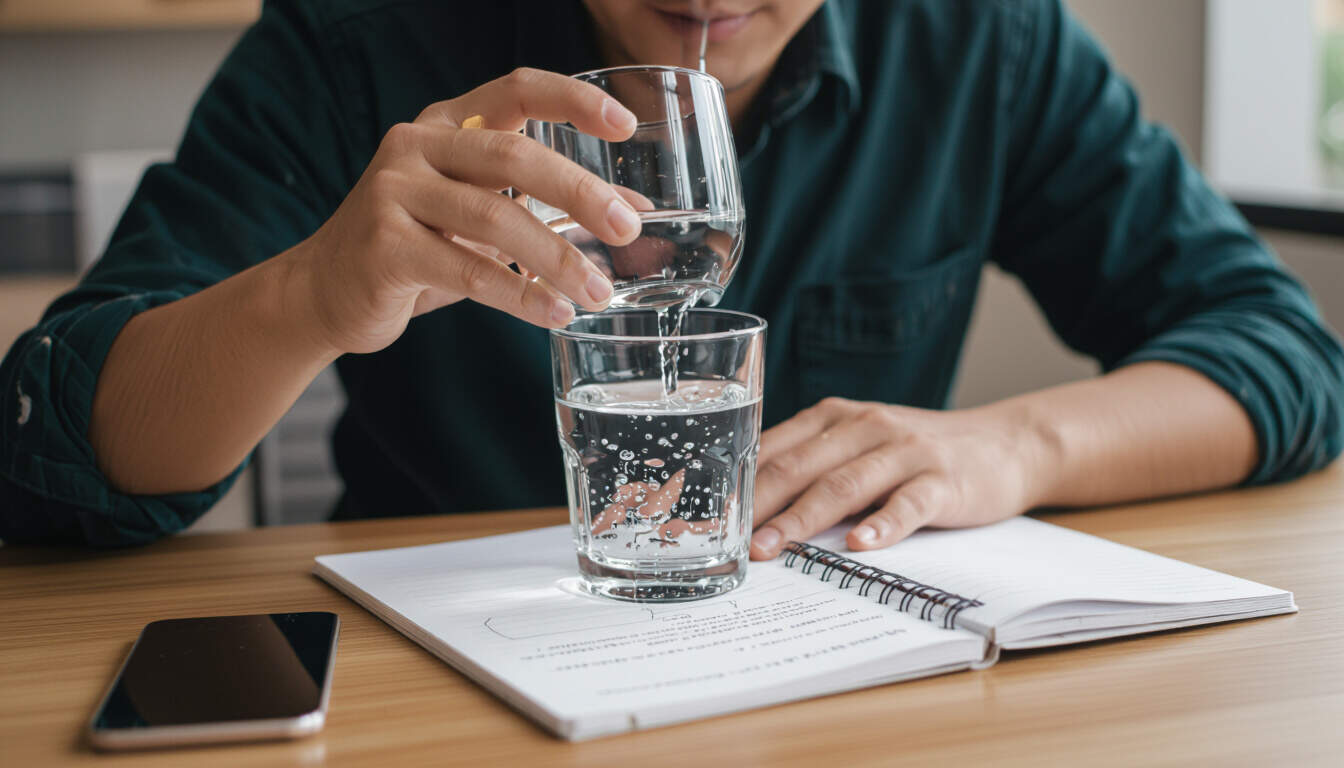Hydration's Impact on Cognitive Load and Everyday Focus
 by Marlene Keeling
by Marlene Keeling
Discover how proper hydration can ease mental overload and boost cognition for students and professionals. This article explores practical strategies to integrate hydration into daily routines, leading to improved focus and productivity without added stress.

In our busy lives, managing mental demands is essential for maintaining focus and efficiency. Proper hydration plays a key role in supporting brain function and reducing the strain of cognitive load. For instance, even mild dehydration can affect attention and memory, making daily tasks feel more challenging.
The Connection Between Hydration and Brain Performance
Hydration is vital for overall health, particularly for the brain. When the body lacks sufficient water, it can lead to fatigue and slower processing speeds. Studies show that adequate fluid intake helps sustain energy levels and supports neural activity. In one scenario, hydration ensures that the brain operates smoothly, allowing individuals to handle information without overwhelming their mental resources.
This link is especially relevant for students during exams or professionals in high-pressure jobs. By keeping fluid levels optimal, people can minimize the effort needed for routine decisions. For example, a simple habit like drinking water throughout the day can prevent the buildup of mental fatigue, which often disrupts productivity.
Practical Tips for Incorporating Hydration into Daily Life
To effectively reduce cognitive load, consider these straightforward strategies. First, aim to drink at least eight glasses of water daily, adjusting based on activity and climate. This approach can be as easy as setting reminders on your phone or keeping a reusable bottle nearby.
Another tip is to pair hydration with meals. Eating fruits like watermelon or cucumber, which have high water content, not only quenches thirst but also provides nutrients that aid cognition. Over time, this integration can become second nature, freeing up mental space for more important tasks.
For those with packed schedules, tracking intake through a simple journal or app offers a clear way to monitor progress. This method helps identify patterns, such as dehydration in the afternoon, and address them promptly. By doing so, individuals can avoid the dip in performance that comes from neglecting this basic need.
Benefits of Hydration for Mental Well-Being
Regular hydration brings several advantages that extend beyond immediate relief. It promotes better sleep, which in turn enhances problem-solving abilities and emotional regulation. When well-hydrated, the brain can process information more efficiently, reducing the cognitive load associated with multitasking.
Professionals often report improved concentration after prioritizing water intake, leading to higher output at work. Similarly, students find that staying hydrated during study sessions allows for deeper learning without the frustration of mental blocks. These outcomes highlight how a small change can yield significant results in daily performance.
In addition, combining hydration with short breaks can refresh the mind and prevent burnout. For example, stepping away for a quick drink gives the brain a moment to reset, making complex tasks more manageable. This practice is particularly useful for anyone dealing with prolonged focus demands.
Real-Life Applications and Encouragement
Applying these tips doesn't require drastic changes. Start by evaluating your current habits and identifying opportunities for improvement. If you notice headaches or lapses in attention, it might signal the need for more fluids. Over weeks, consistent efforts can lead to lasting benefits, such as sharper memory and reduced stress.
For students, incorporating hydration into study routines can mean better retention of material and less anxiety during tests. Professionals might experience enhanced creativity and decision-making in meetings. The key is persistence; even small, daily adjustments can build resilience against mental overload.
Ultimately, embracing hydration as part of a broader strategy for cognitive health empowers individuals to thrive. By focusing on this accessible tool, readers can achieve greater balance and efficiency in their lives, turning potential challenges into opportunities for growth.
Wrapping Up with Actionable Steps
To summarize, prioritize hydration to support your cognitive functions and ease daily pressures. Use lists to track your intake, experiment with flavorful water options, and observe how it influences your mood and focus. With these steps, managing cognitive load becomes a more achievable goal for everyone.
